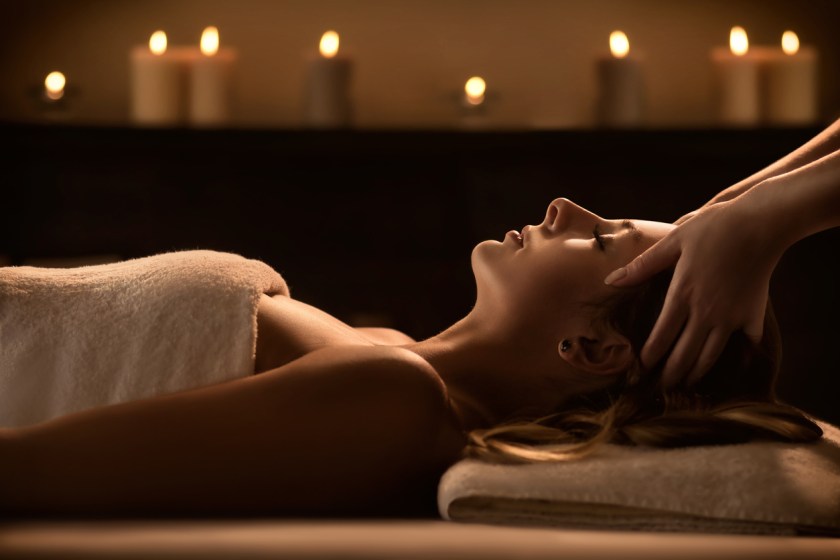Aromatherapy expert, Ben Phillips, talks us through the dos and don’ts of incorporating essential oils into your spa services.
Have you ever caught a whiff of a familiar smell and instantly been transported to another place in time? Scent is a powerful tool, in fact, there’s a direct link in our brains between smell and memory.
This olfactory experience has the power to alter our mood and makes for an influential addition to the spa experience. From relaxation to invigoration, igniting a client’s sense of smell can enhance any treatment on your menu, and aromatherapy is the way to do it.
But with the controversy surrounding the use of essential oils, particularly when it comes to application to the skin, how can you ensure you’re always providing a safe experience?
Ben Phillips is the brand manager for aromatherapy brand, Buckley & Phillips and has decades of experience working with essential oils and aromatherapy.
Having helped to build a brand that’s as focused on the efficacy and safety of aromatherapy use as Buckley & Phillips, he has expert advice on using essential oils in your practice in the safest way possible. We chatted with him to get his best advice to use in your spa.
What questions should spas be asking their clients to determine which oils to choose and their safety/suitability for the client?
BP: Firstly, you should always seek a client’s consent when using essential oils and diffusers during your treatments. It’s a safety thing, but can also come down to personal preference and creating an enjoyable experience. Some people simply have an aversion to certain smells.
When it comes safety, the most common issue will be pregnant or breastfeeding clients. Other health concerns you need to ask for are epilepsy, high blood pressure, sensitive skin, rashes and it’s important to know if your client is undergoing any cancer treatment.
As for contra-indications for these concerns, a high-quality essential oil should have all of the information you need on the packaging. All of the Buckley & Phillips bottles are labelled with warnings for relevant health concerns and this information is clearly listed on our website.
And, if you’re looking to do some independent research, Aroma Web has been put together with well-researched and balanced information. It makes for a useful source.
Creating a great experience for your client also comes down to their own preferences. Ask about their current mood and the state of relaxation they want to achieve. You can match the essential oil you diffuse to their goals and avoid any scents they dislike.
What should spas look out for when choosing which essential oils to use to ensure they’re getting a safe and high-quality product?
BP: Not all essential oils are created equal so it’s important to do your own research and look for reputable brands.
For therapeutic use, you should only be purchasing from a reputable brand that is transparent about testing and sourcing. If it’s not easily accessible on their website, they likely have something to hide. And remember, the words ‘natural’ and ‘pure’ don’t equal safe.
Accurate labelling on the bottle should include the Latin botanical name of the plant used, a complete ingredients list and a use by or best before date stamp. It should also be made clear whether the oil is in pure form or pre-diluted. Essential oils always need to be diluted in an appropriate carrier oil or cream before applying topically. Generally, 0.5% to 2.0% is advisable.
Also, check to see if there any contra-indications or warnings listed on the label. Reputable brands will do their due diligence and ensure everything you need to know for safe use is on the packaging.
How can spas be educating their clients on safe essential oil use at home?
BP: If clients are wanting to continue their experience with aromatherapy at home, recommend they start with a simple diffusion using an oil burner or ultrasonic essential oil diffuser. And always recommend following manufacturer’s directions.
You should never offer any medical advice unless you’re a trained aromatherapist. And, it’s important to double check for allergies or underlying medical conditions before recommending home use.
As for the oils, begin with some of the most familiar and common oils. Lavender, Mandarin, Rose, Chamomile, Sandalwood, Geranium or Frankincense are a good place to start. These are very safe oils to use around the home and most clients will already understand their unique aromatherapy benefits.
See more of the Buckley & Phillips essential oils range.
This article is sponsored by Buckley & Phillips.
DID YOU KNOW
There are 5 ways you can catch up with SPA+CLINIC?
- Our quarterly print magazine, delivered to your door. Subscribe here.
- Our website, which is updated daily with its own completely unique content and breaking news.
- Our weekly newsletter – free to your inbox! Subscribe here.
- Our digital magazine – click here to view previous issues.
- Our social media – see daily updates on our Instagram, Facebook & Linkedin





